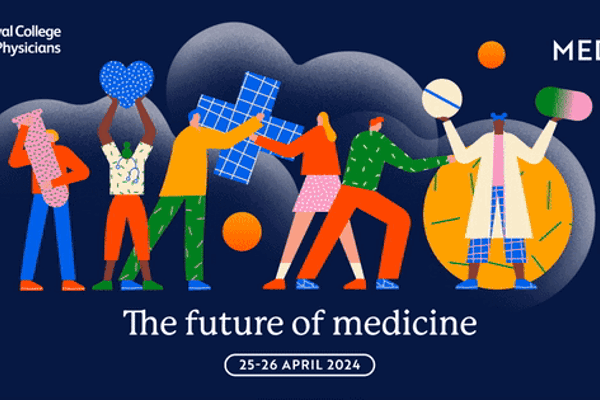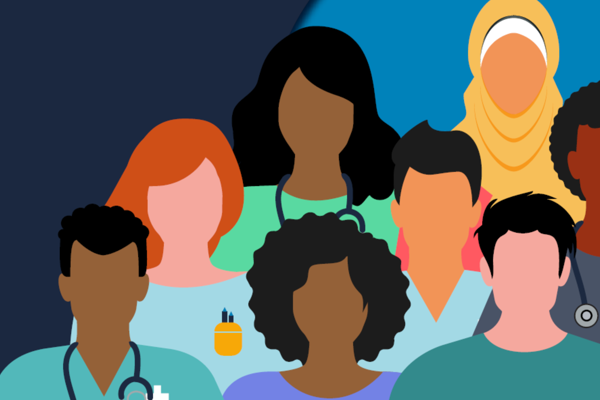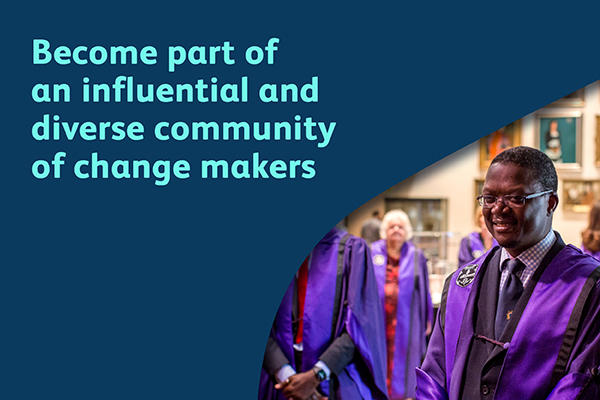For South Asian Heritage Month, this This Doctor Can blog post focuses on the life and career of Dr Umakant Dave FRCP.
Coming from a family with limited educational background in the state of Gujarat, India (neither of my parents or any of their relatives had been to university), I was encouraged to study hard by my parents. When I came first in my state, out of around 100,000 students, in the GCSE- and A-level-equivalent examinations, medicine became the automatic choice for me, without even understanding what it involved! When I lifted the Gray’s anatomy book for the first time I cried with fear.
After completing postgraduate medical training (MD), I completed gastroenterology training (Diplomate of National Board) and started work as a junior consultant in India. It was August 1994, and within a few months, I moved to the UK as my wife had been accepted on to a plastic surgery training scheme. From a junior consultant I became unemployed and started looking for ‘clinical attachment’.
medicine became the automatic choice for me, without even understanding what it involved! When I lifted the Gray’s anatomy book for the first time I cried with fear
Within a few months, an amazing gastroenterologist (Dr David Preston) employed me as a medical senior house officer (SHO) in Louth Hospital, informing me that I had more publications than many consultants! When Calman training was introduced to gastroenterology, all my British co-registrars were automatically given a training number, but I had to go for an interview (as I was on a permit-free training visa). Appreciating that I was very nervous in the interview, Prof Brian Gazzard (fearless and visionary gastroenterologist) asked me whether all my co-registrars had to apply for the training number. The interview panel got the hint about some discrimination and I got a training number and completed training in the North West Thames deanery, including an MD from a London University.
Since 2003, I have worked in Morriston Hospital, Swansea, as a consultant physician/gastroenterologist. Over the years, I have worked at various levels including clinical director. My two passions (apart from therapeutic endoscopy) includes supporting trainees and mindfulness. I have developed the ‘best junior and senior trainee’ awards in my health board and supportive Swansea Graduate Entry Medicine student (SGS) awards.
I am really proud of some of the international work I’ve done, including supporting endoscopy training in Bangladesh. Along with two of my colleagues, I managed to establish a UK charity to continue this work, which received my health board chairman's award.
One of my patients told me that mindfulness training (mindfulness-based stress reduction; MBSR) really helped her with irritable bowel syndrome (IBS) and stress. Having realised that I was feeling very stressed, I joined MBSR in 2010. Having really benefited, I decided to spread the word and attended mindfulness teacher training from Bangor University. I have been running mindfulness and wellbeing introduction courses, as well as full-day training for medical students, trainees, senior clinicians and other healthcare professionals.
During the COVID-19 pandemic, I have run, ‘Debrief and Wellbeing’ weekly sessions for all healthcare professionals. My wellbeing-related work was recognised as a finalist by the RCP Excellence in Patient Care Awards (Welfare and Wellbeing award). Bless the RCP!
I would strongly encourage everyone to work hard, take up new roles/challenges, talk to colleagues about problems they are facing and be aware of wellbeing issues. And finally, do join a mindfulness course if you’re able to.
Would you like to share your experience of going into medicine? Get in touch on Twitter via @thisdoctorcan.





